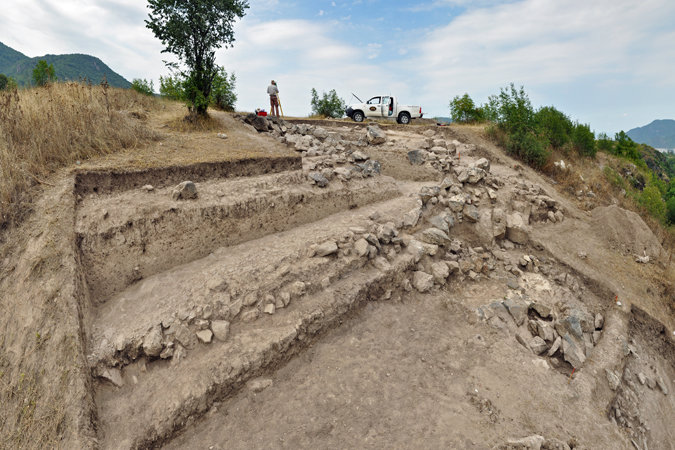Pre- and protohistory

The degrees in prehistoric archaeology or pre- and early history concerns itself with the periods of human history which have either none or very limited written resources. Its focus lies on worldwide cultural history from early humans in the Stone Age until the Early Medieval Period with its main concentrations in Central Asia and the Atlantic between North Africa and Scandinavia.
Everyday culture, history, economy as well as society and religion of the prehistoric cultures are the most important areas in this line of study. Therefore prehistoric archaeology uses a wide array of methods, which includes traditional comparative methods of object and image analysis, statistical and scientific methods, basic approaches in sociology, ethnology and cultural studies.
Prehistoric archaeology is closely linked to archaeometry as well as other archaeological disciplines, e.g. classical archaeology with its study of Mediterranean cultural history.
Among the traditional techniques of prehistoric archaeology are excavations and field surveys. In this way, prehistoric humans and their remnants can be examined in a diversity of early landscapes, environments, societies and economies.
Studying in Bochum
At the Ruhr-Universität Bochum (RUB) prehistoric archaeology can be set as a focus during undergraduate studies (Bachelor of Arts) within archaeological studies.Having attained the bachelor in prehistoric archaeology, a master’s programme in this field can be obtained. Subsequently a doctorate in the same research area may be achieved. The Institute of Archaeological Studies alternatively offers masters programmes in classical archaeology as well as economic and raw material archaeology.
The emphasis of prehistoric archaeology courses at Bochum are focused on the earlier prehistoric periods (Neolithic, Bronze Age and Iron Age), Roman Empire, Early Middle Ages in Europe, and the archaeology of North-Rhine Westphalia. Recently the education syllabus for prehistoric archaeology has been expanded and now includes the prehistory of the Mediterranean Basin and Near East.
Additionally, the Institute offers seminars on the Palaeolithic Period, which are held by qualified members of the archaeological field office in Olpe, Landschaftsverband Westfalen-Lippe (LWL), scientific field trips and guest lectures.
A close cooperation with the “Westfälischen Museum für Archäologie”in Herne (Archaeological Museum of Westphalia) allows additional courses with more practical approaches.
Special features of research and teaching
In Bochum, prehistoric archaeology research and academic studies not only concentrates on Europe in general and on the region of Westphalia in particular, but also covers the Mediterranean Basin as well as parts of Asia and South America.Amongst other aspects, Bochum places special emphasis on settlement archaeology e.g. the study of the settlement areas of Romans and German tribes in Westphalia and their contact zones especially with respect to the interaction between humans and the environment with special focus on the exploitation of resources. Cooperation with the Deutsches Bergbau-Museum (DBM) in combined research projects both nationally and internationally can be seen as a great asset.
In this context, elements of economic and raw material archaeology are combined with field methods of the archaeology of mining and scientific methods used in the studies of archaeometallurgy. In addition to projects in Central Europe (Germany, Austria), the institute participates in cooperative research in the Near East, Eurasia (Georgia, Iran and Kazakhstan) and the Mediterranean Basin (Iberian Peninsula, East Mediterranean Basin).
EDP-aided evaluation methods and – unique in Germany – aerial archaeology is combined with methods of geophysical prospection to form a basic corroboration in international and interdisciplinary research.
